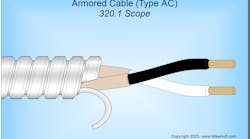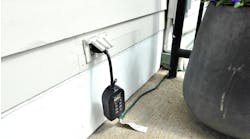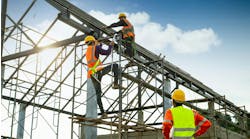When Bill Viot, thermographer for The Hartford Steam Boiler Inspection and Insurance Co. conducted a recent electrical equipment thermography inspection, he found this improvised fuse installation on an 800A, 3-phase, 208V, open-type switchboard. The original Class L fuse was replaced by this assembly of parts to adapt the Class L, bolted-mount fuseholder to a 600A, Class H, one-time bladed fuse.
The Standard for Electrical Safety in the Workplace, NFPA 70E-2018, defines a Qualified Person as, “One who has demonstrated skills and knowledge related to the construction and operation of electrical equipment and installations and has received safety training to identify the hazards and reduce the associated risk.” (Art. 100)
In addition, Sec. 205.1 of NFPA 70E states, “Employees who perform maintenance on electrical equipment and installations shall be qualified persons as required in Chapter 1 and shall be trained in, and familiar with, the specific maintenance procedures and tests required.”
It is very important to follow this simple NFPA 70E requirement to maintain the equipment, building, and life safety. This improvised fuse installation needed to be quickly “defused” and replaced with the original Class L fuse of the appropriate amperage rating.
Let’s review the many ways this “unqualified person” installation could have developed into an equipment failure, building fire, or electrocution, if it had not been quickly identified by a qualified person and corrected.
Editor’s Note: Be sure to read and understand NFPA 70B, Chapter 7, Personnel Safety, before attempting any electrical work. Preventive maintenance should be performed only when equipment is in an electrically safe work condition. Chapter 7 refers to NFPA 70E, Standard for Electrical Safety in the Workplace, for detailed electrical safety recommendations that must be followed. All electrical work practices must comply with the applicable OSHA regulations related to safe electrical work practices.


